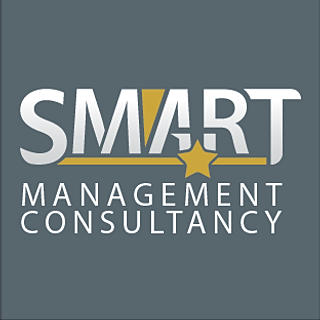Waste Management in Hospitals and Medical Centers: A Strategic Guide According to NHRA and Bahrain National Regulations
- Smart Management Consultancy
- Aug 6, 2025
- 3 min read

What if I told you that a simple bin could save lives or destroy reputations?
In the bustling heart of every hospital or clinic, waste bins quietly collect the by-products of care. But what happens next is far from routine; it’s a potential public health crisis waiting to unfold.
An improperly disposed needle, an infectious dressing in the wrong bin, or expired medications dumped casually, these aren’t just oversights. They’re ticking time bombs that can lead to HIV transmission, hepatitis outbreaks, legal penalties, and catastrophic reputational damage.
Welcome to the world of healthcare waste management, a system often overlooked, yet critically tied to infection control, staff safety, environmental protection, and regulatory accreditation.
If you’re a healthcare leader, infection control nurse, or safety officer in Bahrain, this guide is your urgent call to action. In this blog, we offer you SMART actions for better Waste Management.
Healthcare facilities generate various types of waste: some hazardous, some infectious, and some general. Improper handling can result in:
Occupational exposure to pathogens or injuries
Environmental pollution
Legal and accreditation penalties
Risk to public health and community safety
Infections like HIV, Hepatitis B/C, or environmental diseases can spread if healthcare waste is not correctly segregated, stored, treated, and disposed of.
Regulatory Framework in Bahrain
In Bahrain, healthcare waste management must align with
NHRA Accreditation Standards 2nd Edition, Version 6 (2023), Standard 12.3: Environmental Health and Waste Management, mandates a documented waste management plan, staff training, audits, and compliance monitoring.
Supreme Council for Environment (SCE) Guidelines regulate transportation, treatment, and disposal of hazardous and medical waste.
Ministry of Health circulars and municipal laws dictate the use of licensed contractors and ensure all waste reaches licensed treatment facilities.
Categories of Healthcare Waste (As per NHRA & WHO)
Infectious Waste
Sharps
Pharmaceutical Waste
Chemical Waste
Anatomical Waste
Essential Components of a Waste Management Program
Waste Management Policy and Plan
Develop and approve a comprehensive waste management policy that includes:
Categorization and segregation
Color-coded system
Handling, storage, and transport
Disposal and treatment methods
Emergency spill response: NHRA requires that this be documented, accessible, and periodically reviewed
Color-Coded Segregation System (Bahrain Standards)
Safe Handling & Internal Transport
Waste handlers must wear full PPE (gloves, gown, mask, goggles)
Trolleys should be easy to disinfect and marked as “Clinical Waste Only.”
Waste must be transported twice daily or more frequently as needed.
Spill kits and SOPs should be in place in every clinical area.
Temporary Storage Room Requirements
Be away from patient care areas
Be well-ventilated and secured
Have washable floors and walls
Have signage in Arabic/English: “Biohazardous Waste”
Max storage period: 48 hours, as per local regulation
Temperature from 15 to 18°C
5. Treatment & Disposal
NHRA mandates the use of licensed third-party waste contractors. Contractors must:
Be approved by the Supreme Council for Environment
Maintain transport logs and destruction certificates
Common methods: Incineration, Autoclaving, Chemical disinfection
Staff Training & Education
It is highly recommended to engage all staff in continuous training on waste management at a minimum frequency of once a year and during staff onboarding. This training should ideally include:
Waste classification and segregation
Use of color-coded bins
Sharps safety (never recap!)
Spill response
Reporting incidents of wrong waste disposal or sharp injury
Monitoring, Audits, and KPIs
Recommended performance indicators include:
% of staff trained on waste handling (Target ≥ 95%)
% of waste correctly segregated (audit score) (Target ≥ 90%)
Incident reports related to waste injuries (Target Zero tolerance)
Time to resolve waste-related incidents (Target < 24 hours)
% of expired pharmaceuticals disposed of properly (Target 100% monthly)
Common Pitfalls to Avoid
Mixing general and infectious waste in one bin
Using the incorrect container color
Overflowing waste bins in clinical areas
Delays in internal transport
Untrained outsourced housekeeping staff
Missing records of waste destruction
SMART Management Recommendations
We advise every healthcare facility to:
Develop a Waste Management Manual aligned with NHRA standards
Assign a Waste Officer (often part of the Infection Control Team)
Conduct monthly audits
Train all staff with scenario-based simulations
Keep documentation ready for NHRA surveyors
Conclusion
Waste management in healthcare is a shared responsibility from nurses and doctors to cleaners and top leadership. When done right, it prevents infections, protects staff, ensures compliance, and demonstrates professionalism. Let SMART Management Consultancy help your team build a fully compliant and sustainable healthcare waste management system.
Contact us for policy development, staff training, audit templates, or accreditation preparation.
SMART Management Consultancy, your partner for better performance and compliance.
WhatsApp +973 36077750,
Email: info@smartmcbh.com















Comments